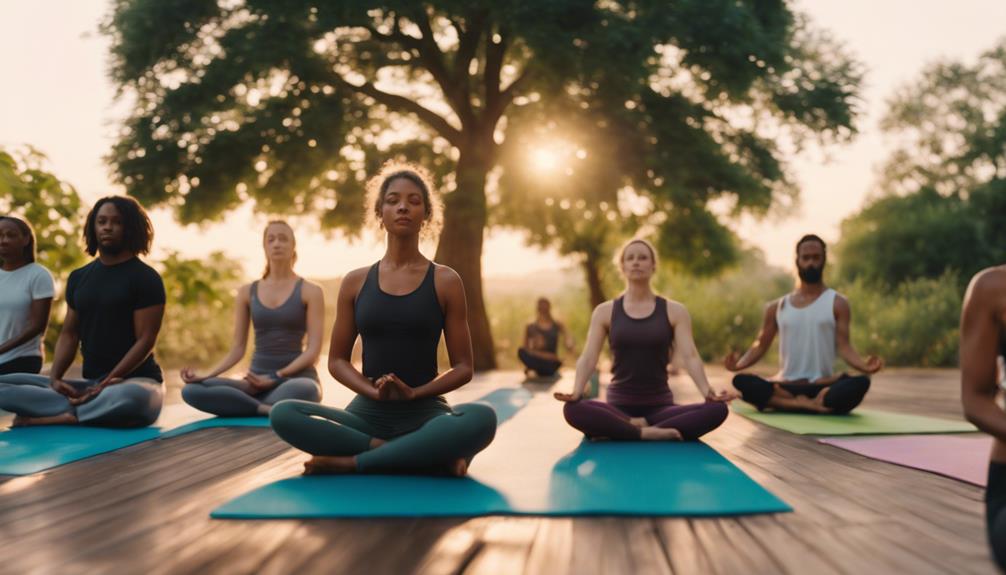Does yoga make you flexible? This is a question that many people ask when they consider diving into the world of yoga. As a practice that emphasizes stretching and mindfulness, yoga has gained popularity for its ability to promote physical well-being. But can it really help individuals increase their flexibility? In this article, we’ll explore the connection between yoga and flexibility, and how this ancient practice can help you bend and unwind like never before.
Stretching Beyond Limits: Does Yoga Make You Flexible?
Yoga is often synonymous with flexibility, and for a good reason. The practice incorporates a variety of poses, each designed to stretch different muscle groups. From downward dog to pigeon pose, yoga requires you to engage your body in ways that may feel challenging initially but ultimately lead to greater range of motion. In fact, research has shown that consistent yoga practice can significantly improve flexibility over time, allowing practitioners to stretch beyond their perceived limits. So, if you’re asking, “Does yoga make you flexible?” the answer is a resounding yes!
However, it’s essential to understand that flexibility doesn’t happen overnight. Like any other skill, developing flexibility through yoga requires dedication and patience. Regularly practicing yoga not only stretches muscles but also helps to strengthen them. As you become more familiar with the various poses, your muscles adapt, allowing for deeper stretches and improved flexibility. This gradual progression is what makes yoga an excellent tool for those looking to enhance their physical capabilities.
Moreover, yoga promotes the mind-body connection, encouraging practitioners to listen to their bodies and respect their limits. This mindfulness can prevent injury and create a safe space for growth. As your flexibility increases, you’ll likely notice improvements in other aspects of your fitness and daily life. Whether it’s bending down to tie your shoes or reaching for something on a high shelf, yoga helps make those movements feel effortless. So, if you’ve been wondering whether yoga can make you more flexible, embrace the journey and find out for yourself!
Unwind and Bend: Discovering Flexibility Through Yoga
When you step onto the mat, you enter a world of possibilities. Yoga provides an opportunity to explore your body’s capabilities, and with regular practice, you’re likely to discover newfound flexibility. Many people begin their yoga journey with the goal of becoming more flexible, and it’s easy to see why. The soothing yet challenging nature of yoga encourages deep stretching that targets tight muscles, leading to increased flexibility.
Various yoga styles can enhance flexibility in different ways. For instance, Hatha yoga focuses on gentle stretching and alignment, making it ideal for beginners. Vinyasa yoga, on the other hand, links breath with movement, creating a dynamic flow that can deepen stretches. As you experiment with different styles, you’ll find the practice that resonates best with you, ultimately aiding in your flexibility goals. Remember, consistency is key, and setting aside time to practice regularly will yield the best results.
Additionally, yoga is not just about physical flexibility; it also fosters mental and emotional flexibility. As you learn to navigate challenging poses, you’ll develop resilience and patience, both on and off the mat. This holistic approach makes yoga a unique practice for enhancing not only your body’s flexibility but also your mental adaptability. So, as you embark on your yoga journey, remember that each pose is a step toward greater flexibility in every aspect of your life.
In conclusion, does yoga make you flexible? Absolutely! With its emphasis on stretching, mindfulness, and body awareness, yoga can significantly enhance your flexibility over time. As you explore the various styles and poses, you’ll not only notice physical changes but also experience personal growth. So grab your mat, breathe deeply, and enjoy the delightful journey toward becoming more flexible in body and mind!
